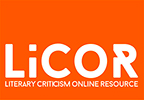Narratives are everywhere. They are produced in every minute of every day and they participate in just about every aspect of society and our own individual existence. As individuals, for instance, we tell stories all the time, both publicly to other people and privately to ourselves, about such things as how we feel, what we have been doing, our hopes and plans for the future, why we hold the beliefs and values that we do, and so on.
The same is true of society and of the various institutions and practices of which it is comprised. Whether we consider politics, media, the law, medicine, the natural sciences, religion or any other large-scale social human endeavour, they all depend upon narrative (the telling of stories) to do their work. Politicians, for instance, might tell us the story of their lives in order to persuade us they are like us, that they understand our needs, and that they are therefore worthy of our vote. Like journalists and lawyers, meanwhile, they compete with one another to produce the most plausible story of what has happened and why it has happened so that we will then support their solution for what they think should be done about it. Therapists and doctors, too, frequently reconstruct the story of their patients’ life experiences, their health issues and current illnesses in order to identify an appropriate diagnosis, while the natural sciences adopt alternative stories about how the universe came into existence and how it functions in order to construct and test alternative models for explaining specific physical phenomena.
As all these examples indicate – and as the obvious importance of storytelling in most of the world’s religions further testifies – to call something a narrative is by no means to belittle it or accuse it of being pure fiction. On the contrary, it is to affirm the vital contribution storytelling makes to every significant aspect of human life.
This, incidentally, provides further justification for something we will be insisting on throughout this module: that we need to place at least as much emphasis on the telling of a story as we do on the story itself. For it is not only (or even, arguably, primarily) what we say about ourselves or the world around us – or what a politician, journalist, lawyer, doctor, scientist or theologian says about those things – that reveals the most about us or them, but also how we put together our stories and say those things. In uncovering this, the tools of narratology (the study of narrative) are a vital resource.
Next: Benefits of narrative
